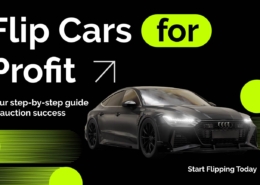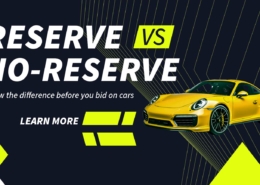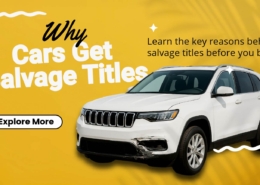 https://auction.ridesafely.com/images/2018/10/banner-truck-auctions-for-everyone.jpg
865
1440
RideSafely
/images/2025/01/ridesafely-logo.svg
RideSafely2025-09-26 12:10:232025-09-26 14:53:10How to Buy Your Next Truck at an Auto Auction
https://auction.ridesafely.com/images/2018/10/banner-truck-auctions-for-everyone.jpg
865
1440
RideSafely
/images/2025/01/ridesafely-logo.svg
RideSafely2025-09-26 12:10:232025-09-26 14:53:10How to Buy Your Next Truck at an Auto AuctionAttending a car auction can be a lot of fun for those who have a passion for cars. Given that they understand what they are getting into, buyers looking to make their first purchase may also benefit from vehicle auctions.
After their second or third auction, people frequently get the necessary expertise. They begin by acquiring a feel for the area or, as suitable in this case, taking a test drive. While this is true for anything we undertake for the first time, it certainly helps to have some background knowledge before getting started.
Auction Prices are Always Bare Minimum
Owners frequently present a price representing the absolute lowest they are willing to pay for their vehicle, with no room for negotiation. Owners who genuinely know how much their automobile is worth are likelier to do this than owners who merely want to sell their car.
But be cautious. Sometimes a flashy vehicle with a high price tag may not be in excellent shape; instead, the owner may seek to recoup the cost of the care they incurred to prepare the vehicle for the auction. Included are all detachable components, paint, and interior upholstery, which you don’t want to pay for.
While most buyers end up purchasing such overpriced cars, sellers will occasionally re-quote the car’s actual worth. Of course, as a novice, you won’t be able to influence a seller you’re interested in. Nevertheless, it is suggested that you learn the skill. Never overpay for a car; always find out what it’s worth.
Vehicles are Always Damaged
Wrecked automobiles offered to body shops for repair or components might be found at auctions that are expressly devoted to them. However, many vehicle auctions in the USA provide trade-ins for new cars, repossessions, police impounds, privately owned cars, etc.
In the modern era of the internet, anybody can determine if a car’s title is salvaged or not by running a VIN history check on it with their mobile phone at an auto auction. In addition, most states have rules stating that it must be disclosed on the bill of sale. That said, unless you make a conscious effort, you won’t acquire a wrecked or salvaged automobile at an auction.
A Car Auction is Not for First-Timers
For a first-time buyer, auctions may appear to be scary environments. This doesn’t have to be the case, though. You should be alright if you research the car you want to buy and go to a few auctions to get a feel for the proceedings. Better still, bring along a buddy who is a mechanic or a more seasoned classic vehicle buyer to assist you in finding a treasure. You’ll be more prepared to obtain the best classic car insurance coverage if you do your research and understand the actual condition of the automobile.
There’s Not Enough Time Given at Auctions
Every public auto auction I’ve ever attended enables visitors to arrive early and browse the inventory of vehicles throughout the daytime hours before the bidding begins. It would help if you took advantage of this chance. Arriving late and placing a hasty bid on a car or truck you know very little about is the quickest way to walk away from an auto auction dissatisfied.
No Reserve – No Interest
Never trust a no-reserve auction. Sellers frequently employ this tactic to generate interest in a vehicle before the auction. They are hoping that the possibility of a good deal would entice additional bidders to participate. It is simple to understand why given that buyers are more inclined to place further bids on automobiles with little or no reserves than on those with high reserves. Although there will be greater competition, this doesn’t mean you won’t find a good deal, so keep your wits.
Rare Cars Fetch a Higher Price
Although everyone is aware of the attention-grabbing auction antics of limited-production Ferraris, a car’s rarity does not guarantee that it will get a high price. While scarcity is significant, the car’s following may frequently be the determining factor. For instance, the price of a classic automobile may soar well above that of a rarer model with less widespread appeal. Our staff at Lancaster Insurance can offer a vintage vehicle insurance quotation for almost every type of classic automobile currently on the market, including some that are challenging to insure.
Auctions Only Have Wrecked Vehicles
This famous tale has a sliver of truth barely to it. Comparable to claiming that all fruits are apples because all fruits are apples. Auto auctions do ultimately receive salvage vehicles and wrecked vehicles. However, this does not imply that only wrecks and salvage titles are offered at vehicle auctions. Auto auctions do, in reality, receive used vehicles from various sources.
Wreck and salvage auctions typically target body shops or parts collectors, and they aggressively publicize this before the sale itself. Nobody can trick you into purchasing a salvage title, even if you are at an auction featuring both wrecks and used automobiles.
Auction Cars are Always Dirt Cheap
Auto auctions are not freebies! Although these prices are undoubtedly less high than those at used automobile lots, it does not follow that they always sell for pennies on the dollar. Wrecks and totaled automobiles may be bought for next to nothing, yet available autos without a salvage title still have a high reserve price.
The reserve price will likely be hundreds or perhaps thousands of dollars more here than at other dealerships, which is a benefit. You should be alright at your first auto auction as long as you don’t anticipate seeing every automobile selling for the lowest possible price. This myth only holds true if you show up in the middle of the auction. Once the bidder selection procedure has begun, they cannot let you squander time.
Auction Cars aren‘t Can’t Get Insured
Once more, this is not entirely accurate. You need to be realistic about this because comprehensive insurance might not be an option if you purchase a complete loss or salvage title. However, even for those vehicles, you may obtain coverage for property damage and personal liability if they are correctly restored. Because of the potential for structural damage, collision insurance can be a step too far for these vehicles.
Many myths and misconceptions are linked to the car auction, as is sometimes the case with topics that are not well-known. While you may get great deals at public auto auctions, most set minimum vehicle reserve prices. The good news is that these costs are frequently thousands of dollars less than what one could spend at a used automobile store. The secret is to give the car you’re interested in a thorough inspection before placing a bid. To find out more myths about online car auctions, visit RideSafely.






Leave a Reply
Want to join the discussion?Feel free to contribute!